Is Business Blogging Worth It, or Is It a Waste of Time?
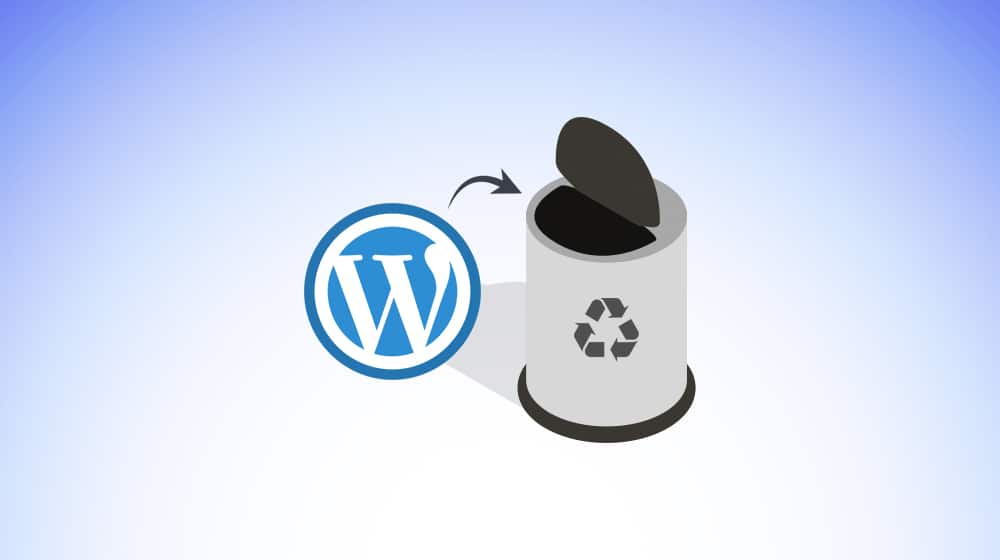
Common wisdom is that blogging is absolutely essential for a modern business to survive online. And yet, when you look at the Google search results, you see the same few dozen companies in any given niche, over and over. Smaller businesses, even those with excellent blogs they've been running for years, never make it up to the top.
Are these businesses just wasting their time? Would you be wasting your time, if you tried to do the same thing they are?
Some people say yes. I personally believe that a blog is essential, but I acknowledge that some of these other folks have valid points, so let's discuss them all.
 30 Second Summary
30 Second Summary
You'll get more customers when you cast multiple fishing lines with blogging. Every blog post you write can catch different types of readers, just like different bait catches different fish. Your blog must have something unique that sets you apart from competitors - think about what specific problems you solve that others don't. Though blogging takes time to show results, it builds trust, spreads your brand name and brings in new business with search engines and social media. You can always hire writers if you're too busy to create content yourself.
Examining the Purpose of Your Blog
Nine times out of ten, if you ask someone who runs a blog what the goal of their blog is, their answer is "to make money." Whether it's a personal blog for an entrepreneur, a business blog, a fashion blog or what have you, the goal is always to draw in more income. Maybe you want to turn your online business into a full time job and quit your day job. Maybe you want a stable passive income you can use to supplement the rest of your lifestyle. Maybe you want the extra cash flow to give you the flexibility to travel and see the world.
Is blogging for money a waste of time? I don't think so. It's not easy, for sure. It's not going to work immediately. It might take a year or two before you're seeing any real returns, and even longer to see enough to be truly valuable.
If you're going to start a blog with the intent of making money, you have to be willing to spend the time – and often money – to get to that point. If you're going to abandon it after a few months or a year with little result, then yes; it's a waste of time for you to start.
All of that, by the way, assumes that you're writing a business blog. You have ways to make money by selling products or services, getting subscriptions, or otherwise converting visitors into cash.

If you're trying to blog to make money with no business attached, you're going to have a much harder time of it. Your options boil down to display advertising, affiliate marketing, or eventually opening a business selling something, be it ebooks, products, consulting, or what have you. Those are rarely the most effective ways to make money online, and while it's possible, it's very difficult.
Still, today I'm focused on specifically business blogging, so remember that that's the perspective I'm going after for this post.
What about the other one in ten, who blogs for a different reason?
- You blog because you have specialized knowledge you want to share with the world at large.
- You blog because you like to write, and your fiction or semi-fictionalized stories are fun to tell.
- You blog because you like to solve problems, and by writing about problems and their solutions, you can help people.
- You blog because you live a unique and interesting life, and you have friends and family who want to hear your stories and live your adventures vicariously.
All of these purposes are fine reasons to blog. Putting information out there into the wider world, especially knowledge that would be otherwise difficult to access, is a great public service. Becoming a resource for people who don't otherwise have a resource is an admirable goal.
Of course, the tricky part is to get that information in front of the right people. In certain small niches, that might not be too difficult; if you search for a highly specific keyword, highly specific results will come up. Trying to reach a wider audience with more general advice and information is harder. It just means you need to learn enough about marketing to reach those people.
Meanwhile, blogs about a personal journey that only appeal to friends and family that already know you don't really need to do any marketing. You can write your adventures, give your link to friends and family directly, and that's good enough.
Why a Blog is Critical for a Business
So why do I and many other marketers say that a blog is critical for a business?
I've used this metaphor before, but bear with me. You can think of blogging like fishing.
The ocean is the internet. Your business is your boat. The fish are people. There are billions of fish in the sea, but of course not all of them are potential customers; some won't be attracted to your bait, some won't taste good so you don't want to reel them in, and so on.
If your boat is your business, you can think of it as your website. Maybe a few fish will swim by the see what's up with this big thing floating up there, but for the most part they won't care. You're not likely to catch any of them, either, unless you happen to be underneath one when it jumps:
Now let's say you write a blog post. This post knows what kind of people it wants to target – your potential customers – and it knows what kind of problems they have and how to address those problems, with your products.
The blog post is the fishing line. Talk of the problems is the bait, and the solutions are the hook.
When a fish lands on your landing page, you reel them in.
Sometimes you get a big, fat fish that becomes an excellent client. Sometimes you get a skinny little fish that might feed you for a night, but you're not excited about it. Sometimes your fish is too small and you throw it back, or it breaks the line, or it's actually just an old boot under the water.
You wrote one blog post, you cast one line. So what happens if you write another?
A second blog post is not a second cast of the line. That's because you're not deleting your first blog post. Your first line is still there, catching the eye of the occasional fish and reeling them in. Your new blog post is a new, second line, with a new piece of slightly different bait and a new hook. A slightly different set of fish will be interested in this new line. Maybe you've cast it to a different place, maybe you've used a different bait, maybe your hook is glittery to attract more predatory fish. Who knows!
The more you blog, the more lines you have cast into the sea. The more different, varied lines you have out, the more varieties of fish you can catch, and the more fish you can catch at a time.

Of course, the fishing analogy falls flat once you realize that large-scale fishing uses nets and other techniques, not just individual lines, but even still. Your blog, once you have sufficient coverage in a topic, becomes like a net; anyone looking for that topic is bound to find at least one post from your site. Some can still swim the other way or slip through the net, sure, but you have a higher catch rate.
We create blog content that converts - not just for ourselves, but for our clients, too.
We pick blog topics like hedge funds pick stocks. Then, we create articles that are 10x better to earn the top spot.
Content marketing has two ingredients - content and marketing. We've earned our black belts in both.
Now imagine you're a small business in a small boat, floating out to sea for the first time. You didn't bring a thousand fishing rods and a million miles of line. You didn't bring a selection of gourmet baits. You just want to see what fish are out there, jumping into boats.
When you're out to sea and you're surrounded by massive megaton trawlers dragging nets through the water, and you see some other small boat coast by bristling with lines like a giant aquatic porcupine, and you can barely move because there's boats and lines everywhere, it's no wonder that nothing is jumping on deck.
Maybe you even look closer, and you see that amongst these thousands of boats, hundreds of them – even those with hundreds of hooks and lines and nets – aren't catching fish either. They're doing no better than you are.
To even begin to compete, you need something unique.
Finding the Unique Value of Your Business Blog
One thing we harp on as marketers is finding your business's unique selling point. Your USP is what you have to offer that other businesses don't. It's what will make people convert with your brand rather than your competition, even if that competition is much larger than you.
Maybe you're hyper-local. You park your boat directly over a very interested school of fish while your competition circles the edges hungrily.
Maybe you're bespoke, organically made, locally sourced, free range. Your bait may do the same things as your competitors, but it's tastier and looks nicer to attract fish more readily.
Maybe you're offering something in the way of features that other boats can't. Your hooks have tiny harpoon guns that shoot out and capture fish and… you know what, this one kind of doesn't work. Still, you get the idea.
You need a unique selling point if you want to succeed as a business, and your blog needs to exist to present that unique selling point to your audience. Otherwise, how would anyone ever know?
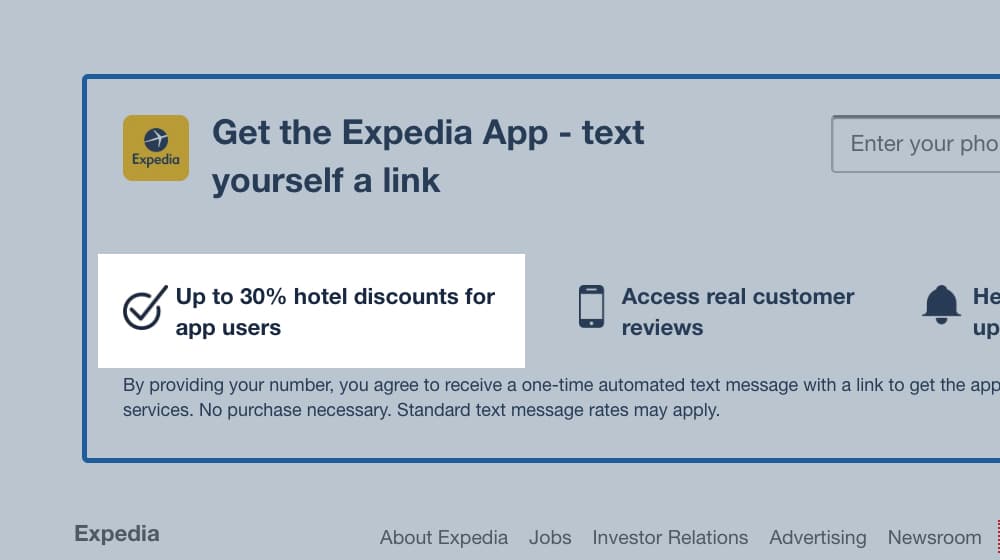
So how can you figure out what your USP is?
- Build a list of what you know about your audience. Who are you trying to reach, and what are their attributes? Build up individual buyer personas.
- Make a list of all of the problems and needs that your audience has, in your niche. Let's use a piece of marketing software as an example; maybe people need things like keyword planners, social media management integration, analytics, content curation, idea generation, etc etc.
- Look at your competition. What features are they offering? Create pared-down versions of your list of problems that remove problems that are well-covered by other apps. For example, if you want to produce a pure analytics suite, it needs to be better than Google Analytics and Facebook Insights.
- Look for a gap in the market. Is there a combination of needs that people tend to get two apps to cover when yours can cover both? Is there a common problem that no one else seems to address?
- Figure out how your business can address this problem. Initially this will be looking for attributes your business already has, but eventually you can use this as a guide to develop more business features or product offerings.
- Refine that unique selling point until you have something you can use in marketing. You want it to be memorable, catchy, or otherwise enticing enough to use as unique bait.
Of course, you need to capitalize on this USP as soon as you can and as heavily as you can. The longer you linger, the longer your competition has to develop a version of your USP and put you out of business. That, though, is all beyond the scope of writing a blog.
Where does your business blog come into it? It's all about messaging. You have your unique selling point(s), but you still need to convey that information to your audience somehow. You do this by writing blog posts that address the problems your USP addresses, and by informing readers that, hey, what a coincidence, we do exactly what you need. Why not try a free trial?
When Blogging is a Waste of Time
Blogging can be a waste of time, but there's an interesting distinction here. Blogging can be a waste of your time, while not being a waste of your business's time.
That is to say, while your business needs a blog, you don't have to be the one writing and managing it.
There are a lot of different ways to run a blog without investing the dozens of hours every week to research, write, and promote it. You can hire blog managers or freelance writers, or you can hire blog management companies.
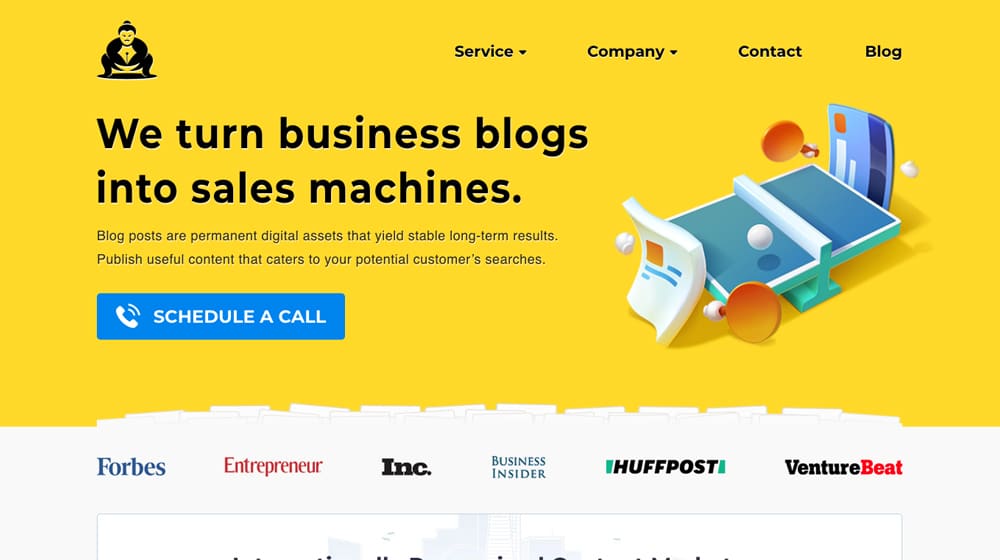
So when is blogging a waste of time, and when is it a waste of your time?
- When you're not a good writer. Web writing, and marketing writing, are a unique skill that takes time to develop. If you're not good at it or you don't have a passion for it, your time can be better spent elsewhere. Speaking of…
- When your time is better spent elsewhere. Business owners often have more critical duties than just writing blog posts. You have partnerships to forge, budgets to approve, networking to network, decisions to make, and so on. Outsourcing is a real, and valuable, process.
- When you don't have anything new to say or new value to add. Alright, sure, plenty of people write blog posts on the same topics you're likely to cover. You need to have a unique value to provide to them. If they're narrow, go broad. If they're broad, go narrow. If they're superficial, go deep. Tie in different perspectives. Link different problems. Do a meta-analysis of coverage of a topic. The sky is the limit.
- When your blog isn't working towards your goals. You generally want to make sure every blog post has a purpose. That purpose might be to provide information, to provide a tutorial, to address a problem, or whatever, but it needs to have that purpose. You can't write just for the sake of writing and expect it to work.
It's absolutely crucial to determine not just if you should be running a blog (you should) but also who should be doing the work of running it.
Why a Business Blog is Essential
I know I keep saying that a business blog is essential, but why is that?
First of all, it allows you to get additional exposure to your business. Primarily this is through Google – and it's why SEO is so important – but that's not the only avenue. You can get exposure through social media, through links from other sites that found you through back channels, and even through word of mouth from your fans, friends, employees, and others involved in your business.
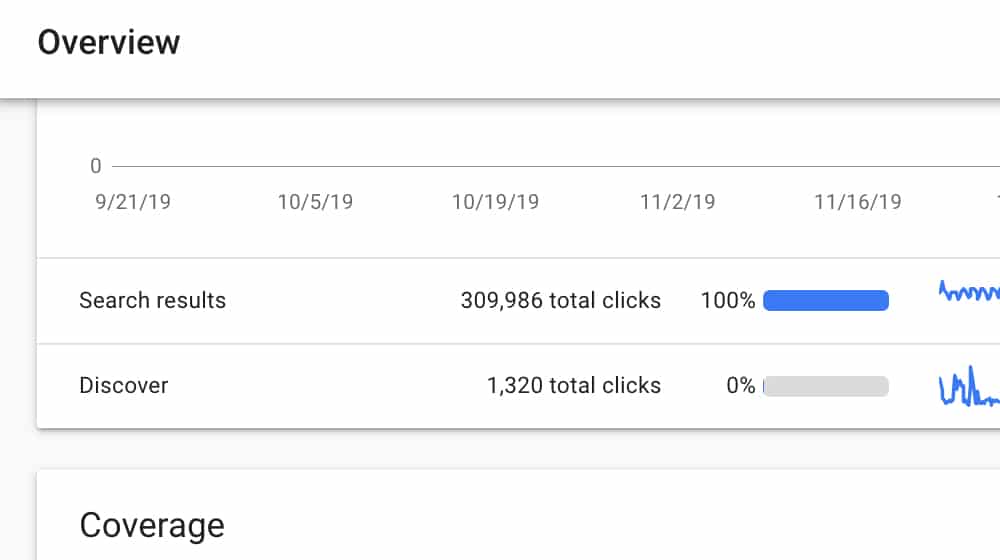
Second, it adds trust. If you're looking for a product and you find two businesses selling it, with the same price and the same options, which are you going to choose? The one that's just a couple of store pages and a payment processor, or the one that has a blog full of usage tutorials and information to reference?
Third, it helps build your brand name. When your content starts to show up around the web, people start to notice your name. They might not consciously recognize you, but when they find your content later, they'll know that they've heard of you before. Even this simplest bit of recognition is enough to increase their faith in your brand, unless the context they heard you in was negative.
And, of course, every blog post is a fishing line. Every single one of them has the potential to shoot up to the first page of Google under the right circumstances, or to go viral on Facebook or Twitter, or to otherwise attract plenty of attention. Even if they aren't top-of-the-line posts, they're still a chance for a user to find you and eventually convert.
I don't think business blogging is a waste of time. Do you? Let us know your thoughts in the comments below!



 30 Second Summary
30 Second Summary
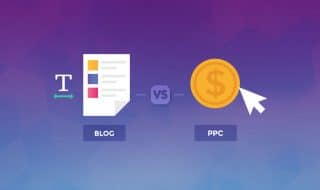

March 16, 2020
I've been blogging for 6 straight months and I'm only now starting to see traffic but I was hoping for more.
Any tips for me?
I'm trying to be patient but only getting a couple hundred hits per day is hard when I've created almost a hundred new articles...
March 17, 2020
Glad you're starting to get some traffic to your posts!
Well, for starters, take a look at your blog posts that are the best performers and try to identify what is making them great. How is the content length? How many links did it get? How many blog comments did it get? How well-written was it compared to your other posts? Does it have images or videos, and if so, how do those compare to your other posts?
This may give you some great insights starting out on what is making your posts successful. If you're seeing a pattern in the types of topics that are performing, you could consider covering similar topics to see if those results can be replicated.
Achieving 200+ visitors per day within 6 months is a great start - keep at it! What is your blog URL so I can take a look?
August 27, 2020
Hi James! I wanted to include videos on my blog posts since I want to grow my YouTube presence as well. I am casting more lines in the internet ocean, as you have called it 🙂 But I am having trouble with what text content should I put on my blog and what should be in the videos as I don’t want the blog content to be just a script of what I am discussing on the video.
August 30, 2020
Hey Jay! Good question, and one I get a lot.
I agree that your video should not just be recapping your blog posts. I think it's good to go briefly over each point in your article, and then add some additional value and thoughts to those points that are not in your blog posts. The key should be to add extra value to your article, so share your opinions, examples, and insights on each section so it complements your aritcle well. Blog formats are structured a certain way and are mostly informational, whereas videos are more casual and conversational, so if you just drone on facts in a video you will probably bore your visitors.
I hope this helps!
January 23, 2022
I agree with you. I don't think it's a waste of time. It takes a lot of time, but it's definitely worth it in the long run for your business.
January 28, 2022
Hey Steve, thanks for sharing!
September 14, 2024
I feel the same way about needing blogs. The part about catching different fish really explains it well. I have had some success with a few blog posts but it's hard.
Cheers yuk
September 17, 2024
Hey there Yuk!
I definitely get you blogging can feel like quite a bit of work sometimes. So great to hear you've had some success! You know the goal is finding the right audience right? 😄 Honestly it's pretty worth it when you see the results even if it takes time.
You might want to try setting a schedule to make things a little less intense. Keep at it!
Best,
Your Name